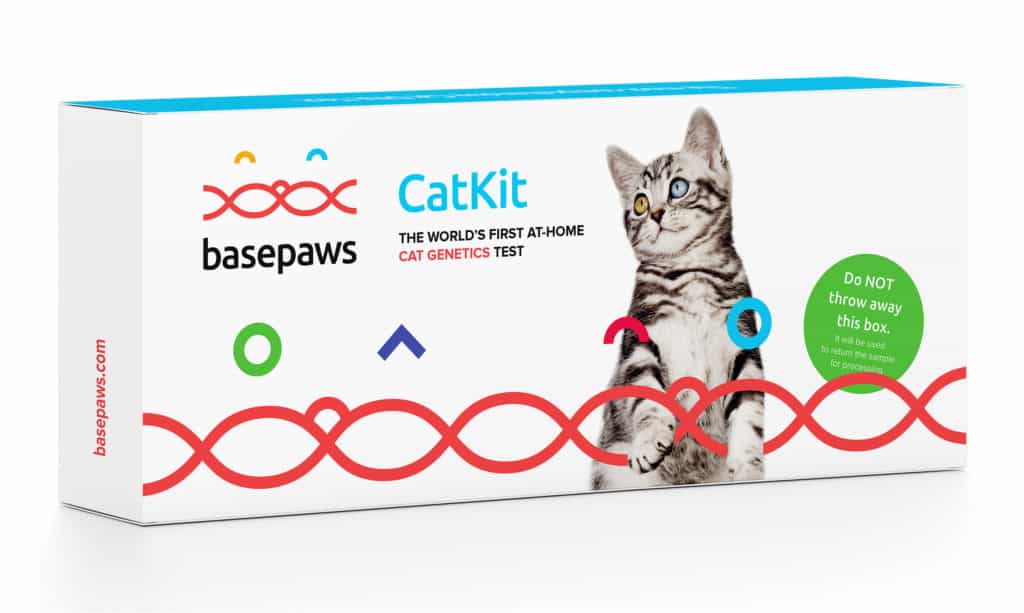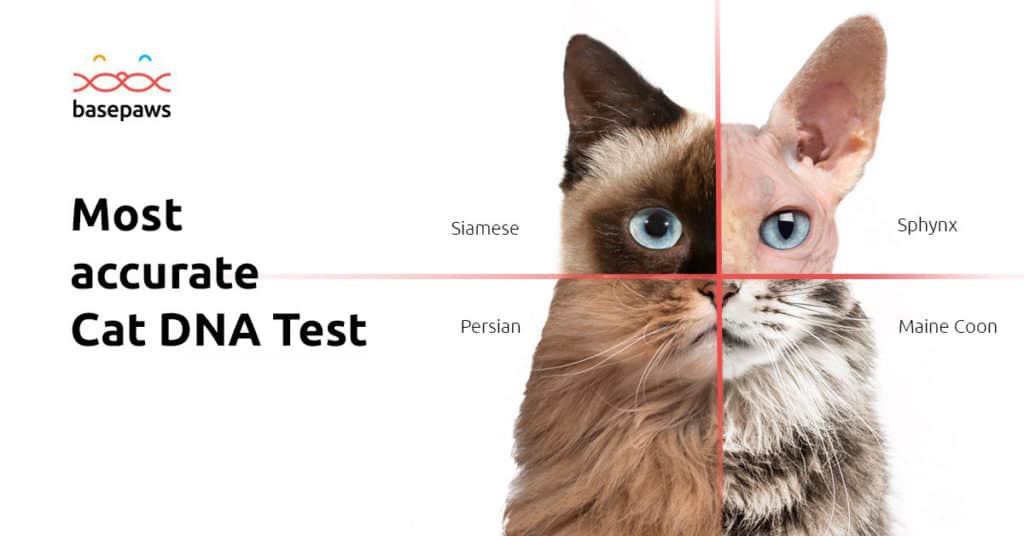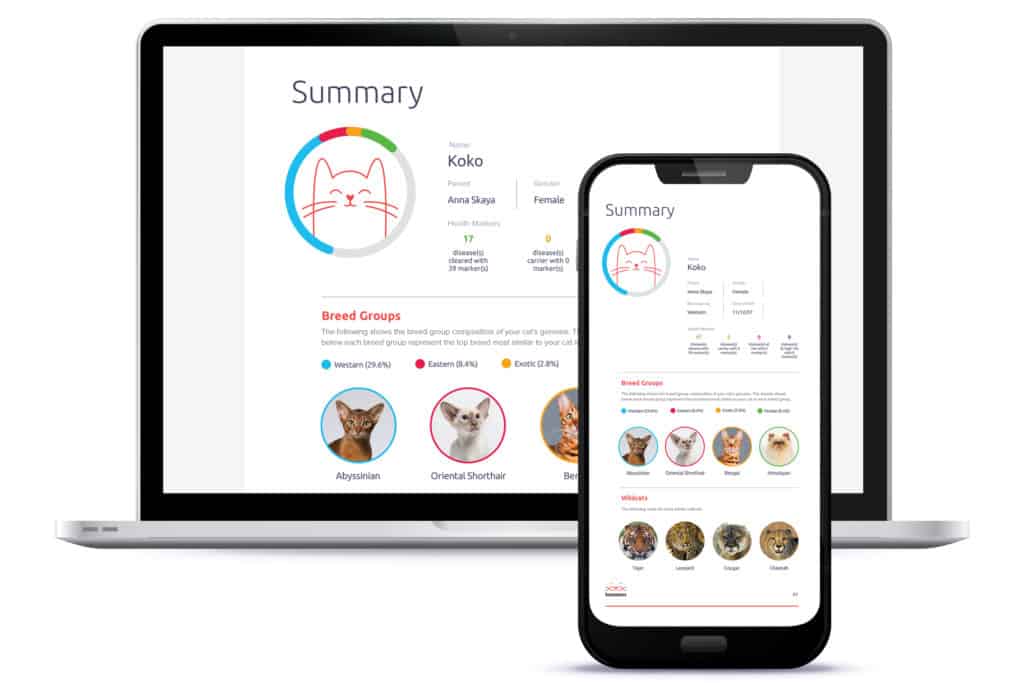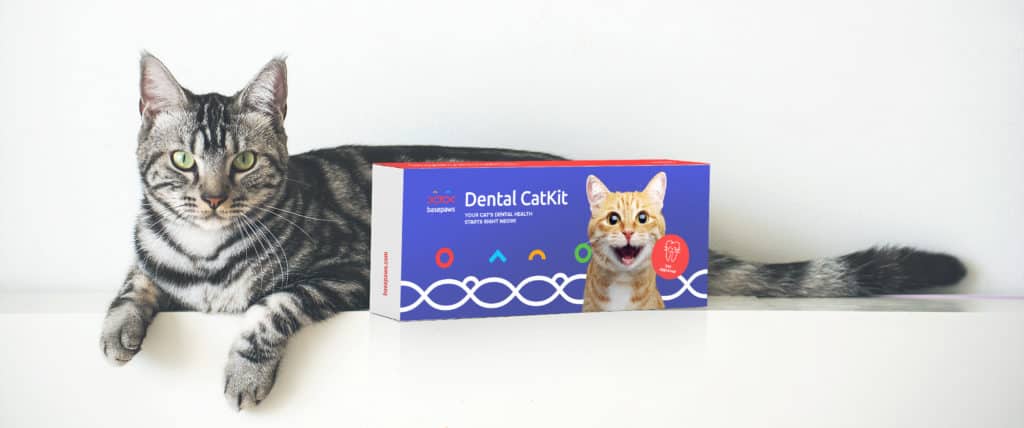
Basepaws is a leader in feline health, providing at-home genetic and dental health testing with digital results available in weeks. Basepaws is committed to animal health research and is the world’s first at-home testing platform for cat owners. We had the opportunity to chat to Anna Skaya, Founder and CEO of Basepaws to learn more about the importance of comprehensive screening tests for cats in improving your pets health.
How long has Basepaws been in the industry and what was the inspiration behind starting the company?
Basepaws was founded in 2018 but we only presented our first product in 2019. We launched on Shark Tank, an entrepreneurial-themed reality show in the US. We spent about a year and a half from when we founded the company to having our MVP. You would usually start a company and have a product right away to start making money but because we have a very unique, very singular product it took a long time to get something going.
The company was founded by me when I was in Silicon Valley, genetics was and still is a very hot, exciting topic. It was clear to me that human genetics and dog genetics was going to be very successful. But as a cat person, the more I spoke to people that were in this space, the more it was clear that nobody wanted to touch cats, as feline genomics is just so underfunded and under studied even though there are more cats than dogs in the world and in the States. There is no microarray, that you can just buy off the shelf and create a company, you really had to start from scratch. There are only a few dozen samples of feline genomics available publicly so even if you wanted a company like Basepaws, you really have to start with collecting your own samples and doing your own sequencing, which is what we’ve done.
We started from scratch and created the very first feline genomics company in the world. There are certainly other players before us, but generally university labs and none of them were consumer based. I thought, well if no one wants to touch cats, we are going to do something big here. We started with feline genomics, very simple kinds of breeds and health marker testing, which is pretty popular now, you have ancestry testing on the human side, and you have breed testing on the pet side.
We are sequencing based, we are not based on a microarray, which is different from many other companies out there. We have our own lab here in Los Angeles, do all the work ourselves and genetics was just the beginning. We are a much bigger thinking company now. We have a new test out, which looks at the dental microbiome of the animal and we are no longer just cat focused, recognizing that there is a big market in microbiome and genomics for dogs as well. We have a pipeline of about 15 different products that look at genomic diseases, genetic diseases for cats and dogs, that we will be rolling out over the coming years.
Again, because we are a sequencing company, the amount and the kind of data that we collect is very, very unique. We collect sequence DNA data, microbiome data, we collect clinical data, a ton of phenotypes and put together, we have been able to create these predictive screening tests that are now being used in the home. As a pet parent it is really hard to get your pet into a carrier and take it to the veterinarian to do these types of tests, you really do want to have at home care available. With pets being such a big part of our lives, we really want to be able to predict and understand them before they get sick. We started with genetics but have evolved to a comprehensive test screening company, more so than just a DNA company.

What are some of the more common reasons that pet owners would have to do a pet DNA test?
That falls very neatly into two almost equally sized categories. There are pet parents that are interested in finding out more about the breed of their pets, let’s say they adopted their cat from a shelter as most cats are, you bring home this pet and it lives in your home, eats your food, plays with your kids, sleeps in your bed but you know nothing about it because it’s adopted. With feline genetics, it is not very clear cut what the exact breed is so we help you understand what we call breed groups. Because cats have not been bred until about 100 years ago breeds and cats very often fall under what we call domestic poly cats. A domestic poly cat is just such a wild and varied mix of breeds that we can’t really distinguish one from the other but often we can tell you in breeds that we can’t distinguish which ones your cat is closest to. Even if the information in feline genetics is not as definitive of canine genetics, we can still tell you kind of where your cat is from and for all of us cat lovers, even that information is incredibly important and critical.
The other reason is more health-conscious cat parents want to understand what genetic markers might be coming up for their cat. About 15% of all our cats that we study have at least one positive genetic marker. And some of those are critical, like HCM, which is a heart condition, or PKD, which is a kidney condition, there are markers for that. Even if you have a marker, it does not mean that you’re going to get sick, and you often can get sick without having a marker but still having information like this is very, very important.
These products have become so affordable, back in the day it would cost hundreds or thousands of dollars to do these tests, now as it is so affordable that for any pet parent it is almost a must have.

What kind of information can a pet owner expect to receive following a test?
They would receive a report which is very comprehensive and easy to understand. We have 10s of 1000s of cats in our database at this point, so we compare your cat to the DNA of 10s of 1000s of others and can tell you a breakdown of the breed groups and some of the breeds. We look at 40 different diseases and markers and can tell you if you are a carrier for that marker or not, this is the DNA product that we have.
We have just launched a very innovative, interesting screening test for dental disease. Humans brush our teeth, hopefully twice a day but our cats never do and very often cats develop dental disease, so you really need to be on top of it. When you see gingivitis or periodontal disease coming up you take your pet to the vet to get a cleaning or do some at home care. This new product is an at-home, preventative dental test designed to inform cat owners if their cat is developing serious dental issues based on the state of their oral microbiome. We are the first ones in the world to have it as a as a test.
As a sequencing company we are able not only get DNA, but we are able to get things like the microbiome, and this is the beauty of sequencing, you can pick up and sequence not just the DNA of the cat, but also the DNA of the bacteria inside the cat, which is a wealth of data that you might have not have had if you were doing for example, a different test that’s based on the array, the array looks at a very different slice of information that a sequencing test does.

Please tell us a bit more about the difference between your Whole Genome Test and your Breed + Health DNA test.
Basepaws Whole Genome Sequencing is a much deeper, more comprehensive sequencing. In the Breed and Health DNA test we do low coverage, sequencing, about 1x coverage, where the Whole Genome Sequencing is between 15 and 20x coverage. We look at a much bigger part of the of the genome, that allows us to pick up other things that we might not be able to pick up with a low coverage sequencing. That product is, again, a very unique product. There is no one that offers whole genome sequencing for cats, except for Basepaws. It is usually purchased by pet parents that are very, very keen to get to know their pet even more, very often is purchased by scientists, or enthusiasts of feline genomics that really want to understand their pet and understand feline genomic data in general. It is very cool product and we have an enormous amount of users that that choose it.
Where do you see pet DNA testing headed in the future?
Feline genomic testing is quite new where canine genomic testing has been around for at least a decade as a consumer company. Genomic testing for cats is the future in owning a pet and being a pet parent. There are very few things you can do if you have rescued a pet from a shelter, and if you really want to understand what kind of pet this is.
When I got my two rescues, I did not know anything about them as kittens, they got their DNA done with Basepaws and their DNA markers tested. For basically $100 you get to really learn the ancestry of the pet and health markers of the pet. It is so affordable, and the information is predictive so you can tell you if something is going to happen later in life. Doing this test can possibly save your pet or save you an enormous amount of money later when you need to go to the vet if there is a problem that you probably did not know about. It should be in your toolbox as a pet parent.
DNA testing in general is so exciting, for $100 we can learn an enormous amount about ourselves. It is one of those products that is a no brainer for us and people in our family, including our pets. I wanted to make a product that was for not just for dog owners as cat owners, we really love our cats want to be aware of that information too.
I want to emphasize that with cats especially, dental health is critical, because we don’t brush their teeth. It is important to catch dental disease early as it can be indicative of more serious issues such as autoimmune disorders, chronic kidney disease, cardiovascular problems and diabetes mellitus. Obtaining this knowledge gives both pet owners and veterinarians a leg up in stopping early dental disease. You can receive these insights for only $70. The reason why it is so inexpensive is that the science has become so inexpensive when it comes to these tests, it can be applied multiple times a year to our pets and keep them much healthier.


